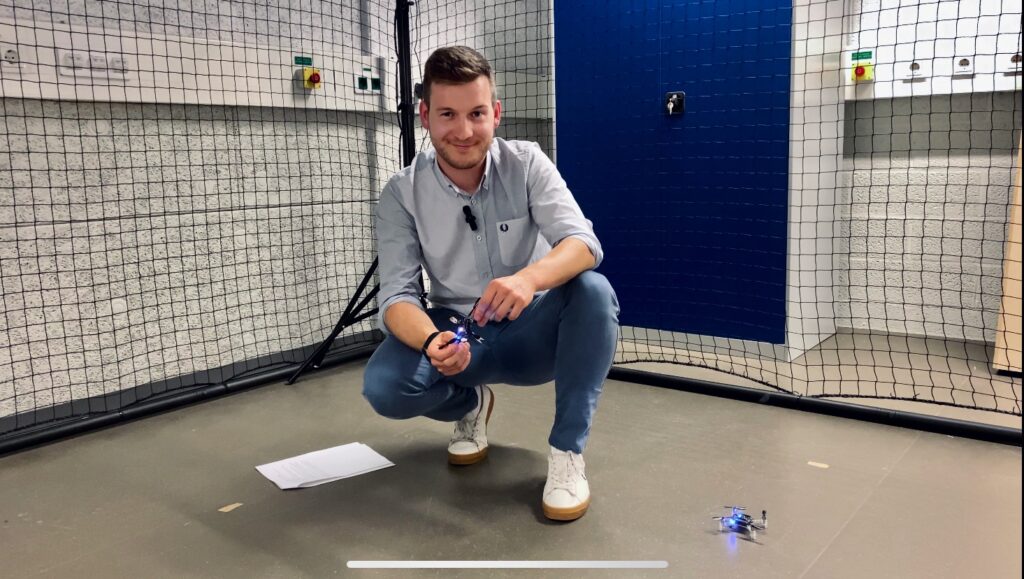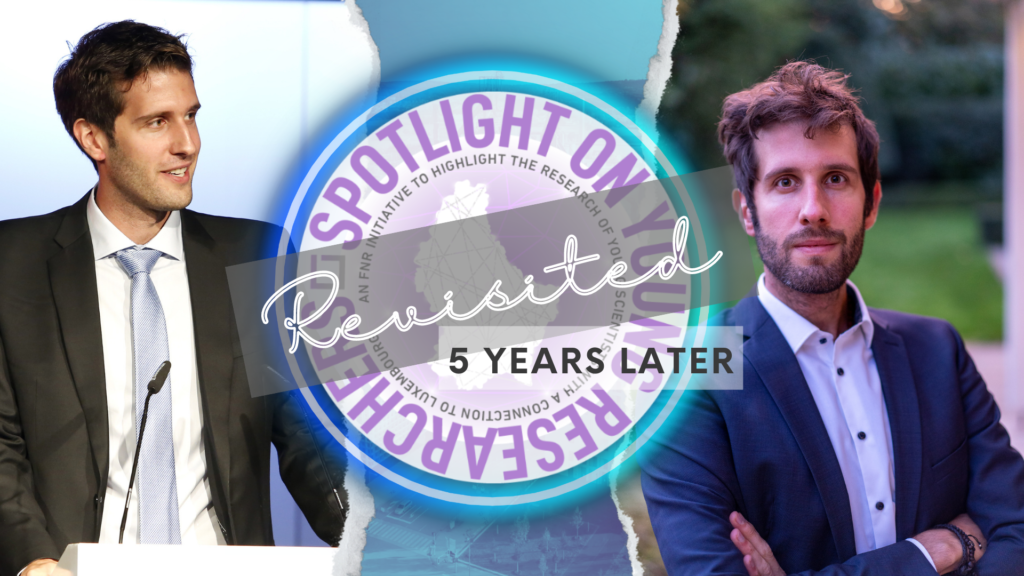
During his Bachelor studies in physics and photovoltaics at the University of Luxembourg, Max Hilaire Wolter was exposed to live-action research for the first time. The experience left such a positive impression that Max proactively sought out to return to the same lab for a PhD after completing his Master’s studies abroad. We spoke to the Luxembourg national about why research is fun, solar cells and the importance of science outreach.
When were you first ‘exposed’ to research and why did you decide to do a PhD, and why in Luxembourg?
“I did my Bachelor studies in the Laboratory for Photovoltaics at the University of Luxembourg and had an amazing time. Even though the research period of the bachelor thesis encompasses just a few months, this was my first ever ‘live action’ exposure to research.
“After my Master’s abroad I came back to Luxembourg. Since I wanted to stay in research and academia at that time, I decided to do a PhD. Given that I had such an amazing time during my Bachelor, I asked my former Professor, Susanne Siebentritt, if there was any open position in her lab. There was, and I could convince her to hire me and start my journey as a PhD student.”
You work on thin film solar cells: how do they differ from normal solar cells?
“Contrary to the solar cells that you usually see in everyday life, like for example on rooftops, these thin film solar cells are not made of silicon but from a compound of copper, indium, gallium and selenium (also known as CIGS). They are very powerful in terms of catching and absorbing the incoming sunlight which is why it is possible to build solar cells that are much thinner than regular solar cells and thus, from a material perspective, much cheaper.”
If the thin film solar cells are cheaper to manufacture, why are they not standard?
“Unfortunately, the regular silicon solar cells are still superior in terms of performance, which is why the CIGS solar cells are not yet profitable. In our research group, we fabricate and analyse the CIGS solar cells in a multitude of ways in order to increase their power conversion efficiency. In my specific case, I am analysing the optoelectronic structure of the CIGS material by means of photoluminescence spectroscopy.”
How do you analyse the optoelectronic structure of solar cells?
“I shoot light with a laser onto the material which then emits light as a reaction (much like shining a UV light onto invisible ink and making it visible). I investigate this emitted light and then try to relate its properties to the performance of the final solar cell.”
You are in the early stages of your research career, how do you like the career you chose so far?
“During my time as researcher, I can genuinely attest that the vast majority of people I met are happy with their professional life. I don’t think you find this in many other professions. Due to this pleasant atmosphere, I don’t find it hard to get up in the morning and go to work.
“Solving problems and overcoming challenges is fun, meeting new people is fun, discussing your findings with peers from all over the world is fun, teaching is fun and managing your project is fun. And this is what research is all about. Okay, I have to admit that there are things that are certainly not fun. But nothing is perfect.”
Is there any particular impact you hope your research will have?
“There are different kinds of researchers; some do research because they like it, some do research because they have to, and some are so obsessed by research subject that they spend every waking hour on it. I think I belong rather in the first category.
“I like research a lot, but I don’t spend all my available time on it since there are also other things that are important to me. This means that the impact I could have with my research is limited. Nonetheless, I believe that you don’t have to be completely obsessed with your research topic to be a good researcher. I believe that stepping back a bit from time to time and having a look from “afar” can help you come up with fresh ideas and improve your professional performance.
“I would be glad if my research could prove to be a strong contribution in my field of study and if I can pass my knowledge on to my colleagues and peers and help them out whenever I can.”
You are a Luxembourg national and, in addition to your current PhD studies, did your Bachelor studies here – how do you think Luxembourg is developing as a research destination?
“Luxembourg has huge potential as research destination because it is so multicultural. It is easy for foreign people to settle here, and that is what research is all about. Getting people from all over the world, from different countries and cultures, to work together to solve a problem.
“Additionally, Luxembourg is very small which makes it easy, from a logistics point of view, for academic and industrial partners to work together. Furthermore, research in Luxembourg is extremely well supported financially and given that the financial backing from the government just recently increased by a considerable amount, research in Luxembourg will only grow.”
What are your thoughts on science outreach; do you engage in activities where you can bring science closer to the public?
“Nowadays a researchers’ job is not only to do research but also to manage, teach and outreach. You manage projects and people, teach and supervise students, and do outreach to the public to get young and old people interested in science.
“In Luxembourg we are very fortunate to have many such events. For example, in November every two years there is the Science Festival where more than 10,000 people show up in the span of four days and are willing to participate in various workshops organised by people from different scientific backgrounds.
“Then there is the ‘Chercheurs à l’école’ initiative by the FNR where researchers go to local schools to talk about their research. More and more institutions that promote science to the public are popping up. I am a big enthusiast of science and sharing my passion with other people is always memorable, no matter the occasion.”

You are now in the third year of your PhD, are there any experiences so far in your PhD that stand out to you as highlights?
“During my PhD studies, I visited a lot of conferences and European project meetings but the most memorable one was probably one of the biggest international conferences of my field of study held in Washington D.C.
“The organisers rented the majority of a huge Marriot Hotel (the hotel was literally encompassing a whole block). It was awesome to just get up in the morning, go downstairs to one of the different meeting rooms and listen to people talk about their findings. After the daily talks, we went for dinner in the city and could even go and do some sightseeing. All in all, it was a pretty great experience.”
Published 12 July 2018
In 2017, Max participated in an ECTS-Science Communication course that the FNR ran in collaboration with the University of Luxembourg. View the video made as part of the course, where Max explains his research in 90 seconds:






